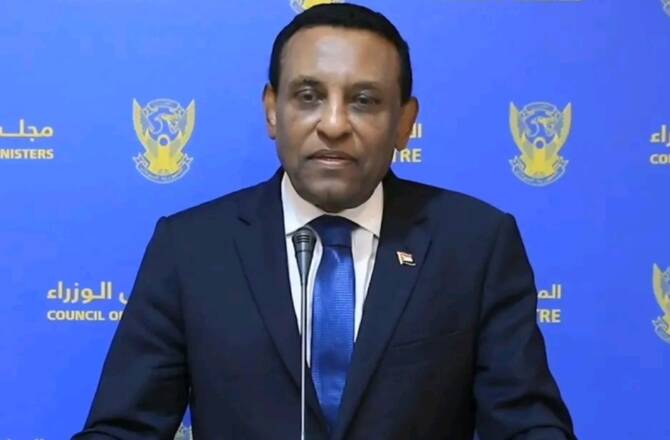KHARTOUM: Sudan’s Prime Minister Kamil Idris on Saturday pledged to rebuild Khartoum on his first visit to the capital, ravaged by more than two years of war, since assuming office in May.
Touring the city’s destroyed airport, bridges and water stations, the new premier outlined mass repair projects in anticipation of the return of at least some of the millions who have fled the violence.
“Khartoum will return as a proud national capital,” Idris said, according to Sudan’s state news agency.
The war between the Sudanese army and the paramilitary Rapid Support Forces began in the heart of the capital in April 2023, quickly tearing the city apart.
Tens of thousands are estimated to have been killed in the once-bustling capital which 3.5 million people have fled, according to the United Nations.
According to Khartoum state’s media office, Idris on Saturday visited the army headquarters and the city’s airport, two national symbols whose recapture along with the presidential palace earlier this year cemented the army’s victory in the capital.
But reconstruction is expected to be a herculean feat, with the government putting the cost at $700 billion nationwide, around half of which in Khartoum alone.
The army-aligned government, which moved to Port Sudan on the Red Sea early in the war and still operates from there, has begun to plan the return of ministries to Khartoum even as fighting rages on in other parts of the country.
Authorities have begun operations in the capital to properly bury corpses, clear thousands of unexploded ordnances and resume bureaucratic services.
On a visit to Sudan’s largest oil refinery, the Al-Jaili plant just north of Khartoum, Idris promised that “national institutions will come back even better than they were before.”
The refinery — now a blackened husk — was recaptured in January, but the facility which once processed 100,000 barrels a day will take years and at least $1.3 billion to rebuild, officials told AFP.
Idris is a career diplomat and former UN official who was appointed in May by army chief Abdel Fattah Al-Burhan, Sudan’s de facto leader, to form an administration dubbed a “government of hope.”
The war has created the world’s largest hunger and displacement crises, with nearly 25 million
people suffering dire food insecurity and over 10 million internally displaced across the country.
A further four million people have fled across borders.
In Sudan’s southern Kordofan and western Darfur regions, the fighting shows no signs of abating, with the paramilitaries accused of killing hundreds in recent days in attempts to capture territory.




























